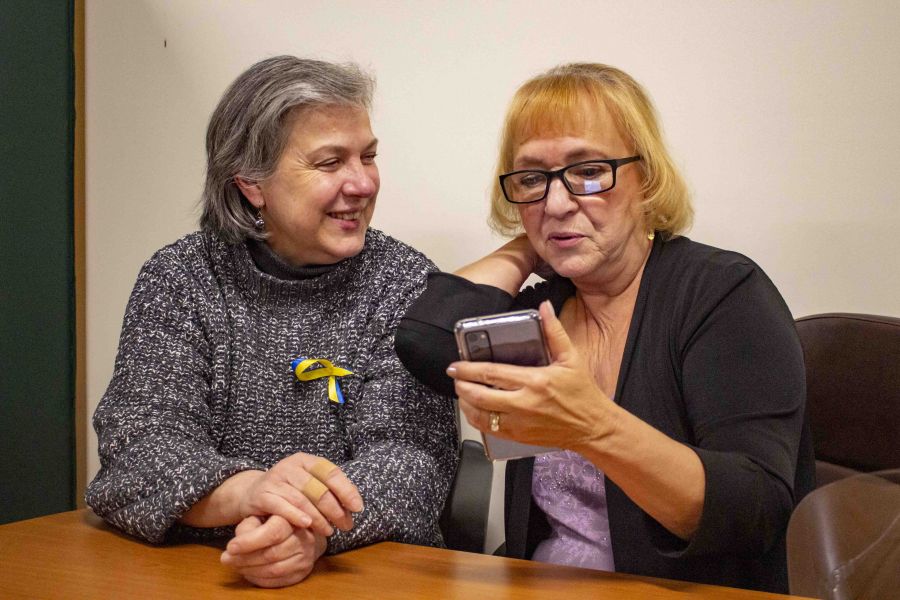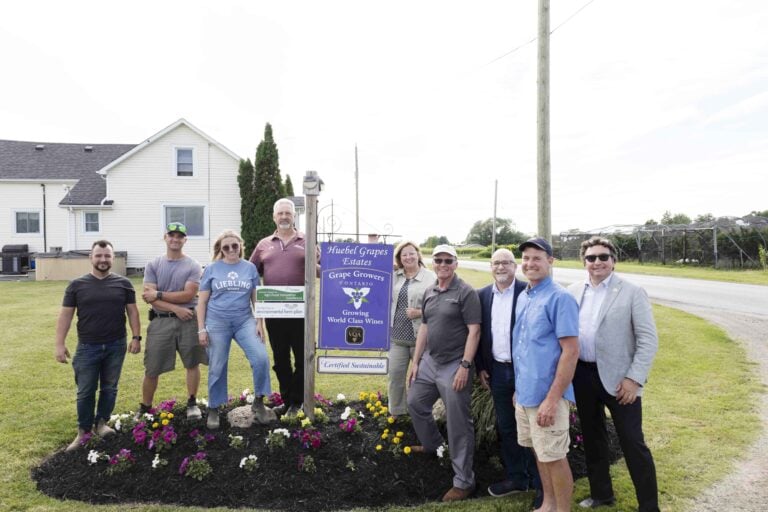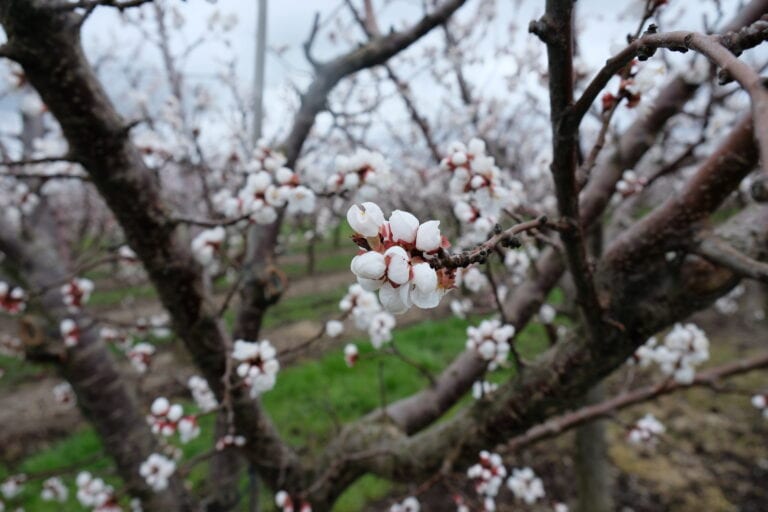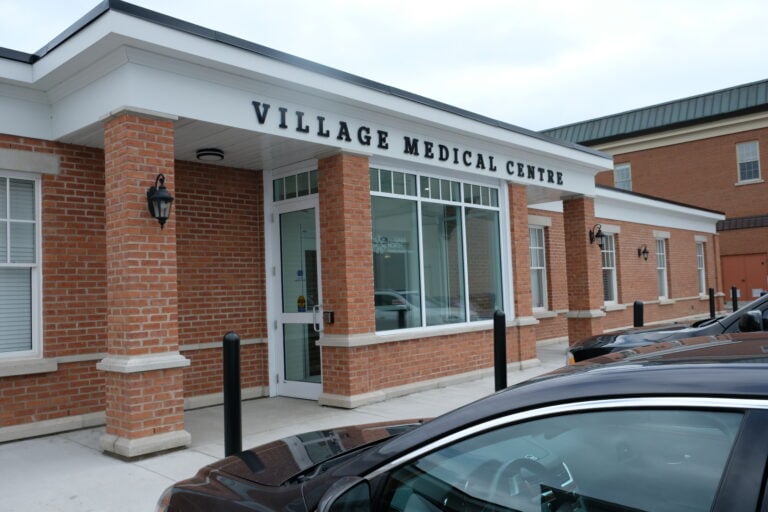Two NOTL women work together to raise money and supplies for Ukraine
When the Second World War was raging across Europe, the Soviet Union began drafting young men to fight against the Axis powers.
Two young men decided to flee Ukraine instead of being forced into the Russian army.
More than 80 years later, their daughters, both now living in Niagara-on-the-Lake, are once again helping Ukrainians in the face of conflict, saying it unites them with the suffering of their family before them.
“My father was in Ukraine under Russian rule and he tried to get food from the black market. They arrested him and sent him to Siberia,” Chris Wormwell said in an interview.
“What ended up happening was they said to him, ‘You have to come and fight in the Russian army,’ ” she said.
Wormwell’s father and a friend abandoned the army in Ukraine and fled to the Polish border. Once in Poland, they ended up joining the Allied forces in the war against Germany.
Her father only ever told her and her family this story one time in his entire life.
She said he most likely suffered from post-traumatic stress disorder from the war and was never willing to engage in discussions about the time.
“I just know he suffered. You just wonder, really, what happened to him?” she said.
When the family went camping, he would refuse to sleep in a tent and would stay in the car instead, Wormwell said.
Because he abandoned the Russian army, Wormwell’s father was never able to return to Ukraine while it was under Russian occupation, she said.
Her Ukrainian family has a long history of being driven out of the country by occupying armies. Her mother’s family fled to Canada when the country was under Austrian rule in the 1800s.
“Living with someone who suffered back then and now seeing it happening again” inspires her to act, she said.
Wormwell’s father died of leukemia. She wonders if seeing the events unfolding in Ukraine now would have prompted him to recall more of his experiences to her.
But she knows “he would have been very, very upset. Very angry” to see the Russian invasion of his homeland.
“He would have been right out there, praying, collecting, doing what he can to be involved in something,” she said.
Wormwell began collecting donations for Ukraine in tandem with her parish, St. John the Theologian Ukrainian Catholic Church in St. Catharines.
She made a post calling for supplies in the Facebook group “Buy Nothing NOTL.”
Through that group she met fellow NOTLer, Lida Kowal Curtis. The two had never met before and have become fast friends over their shared support for Ukraine.
Coincidentally, Kowal Curtis is also of Ukrainian ancestry and her family shares a similar story to Wormwell’s.
Kowal Curtis’ father, Iwan, was the oldest of four boys in the family.
“My grandfather told my father, being the eldest boy, ‘You must flee. You must go because they are going to take you into the army, being the only one of proper age,’ ” Kowal Curtis said.
“So, at 14 years old, my dad fled in the middle of the night. He fled to Italy. No clothes, no food, nothing.”
He ended up in the Italian army, she said.
“There was one picture of my dad (in the army) and I remember asking him, ‘If you were in the war, did you ever kill anybody?’ ” Kowal Curtis said.
“There was no answer.”
After the war, family connections led Iwan to Britain.
Kowal Curtis’ mother, Alexsandra, was captured by German forces in Ukraine and ended up working as a nanny in Austria. Once the war was over, through friend and family connections, she also travelled to Britain.
Kowal Curtis’ parents ended up in the industrial town of Oldham, where they could work as labourers despite not speaking English.
The tradition in England is to go to a pub after work before heading home. There was a pub in Oldham specifically for immigrants and, every Friday, a dance would be held, Kowal Curtis said.
After both being driven across the continent from their home country by war, 18-year-old Iwan and 20-year-old Alexsandra met at the dance. They got married, had one daughter and then moved to Canada where Kowal Curtis was born.
The violence the family suffered under Russian rule and the expulsion from their homeland stays with Kowal Curtis to this day.
“My mother, she had two brothers. There was a picture of my two uncles,” she recalled.
“One of them was killed by the Russians because he refused to join the army. So, he was shot dead in front of his parents,” she said.
“As a warning that, if you don’t join the army, this will happen.”
Kowal Curtis still has family living in eastern Ukraine, five kilometres from the Polish border in the town of Dobromyl.
“Right now, all they see every day are refugees,” she said.
Six of her cousins are still in Ukraine. One now lives in Italy, where she also is organizing relief efforts for the humanitarian crisis springing from Russia’s invasion of the free, democratic nation.
As for her family still in Ukraine, “They’re not leaving,” she said.
“They’re not leaving the homestead. They raise animals and they have crops and they have vegetables.”
“And they’re crossing their fingers right now that there won’t be a nuclear war because they won’t have fertile soil,” Kowal Curtis said, referencing the fighting that has broken out around nuclear power plants in Ukraine.
“It took 25 years after Chernobyl before they could see a blade of grass growing.”
Wormwell and Kowal Curtis both said their efforts to help Ukraine is a part of their families’ legacy and gives them a strong, direct, emotional connection to their fathers and what they experienced.
“That’s why we fight. That’s why we care. Because it’s not good enough to sit here,” Kowal Curtis said.
“We’re very wealthy if you think about the quality of our lifestyle that was gifted to us by our parents.”
“They’re the ones that fought. They’re the ones that gifted me all this freedom. I have children, I have grandchildren and I have to set an example for (them).”
“You have Ukrainian blood in you and you have to be respectful of your fathers and your forefathers and what they have done,” Kowal Curtis said she told her youngest daughter.
NOTL is a beautiful place to live and grow, a rich community with cultural history and modern accolades. So are countless places in Ukraine and they are now being devastated by bombs, artillery — their residents killed where they live.
Readers who wish to support the relief efforts for Ukraine can donate to St. John the Theologian Ukrainian Catholic Church at stjohnuc.com.
Monetary donations are preferred but a list of essential supply items is available on the church’s website.











